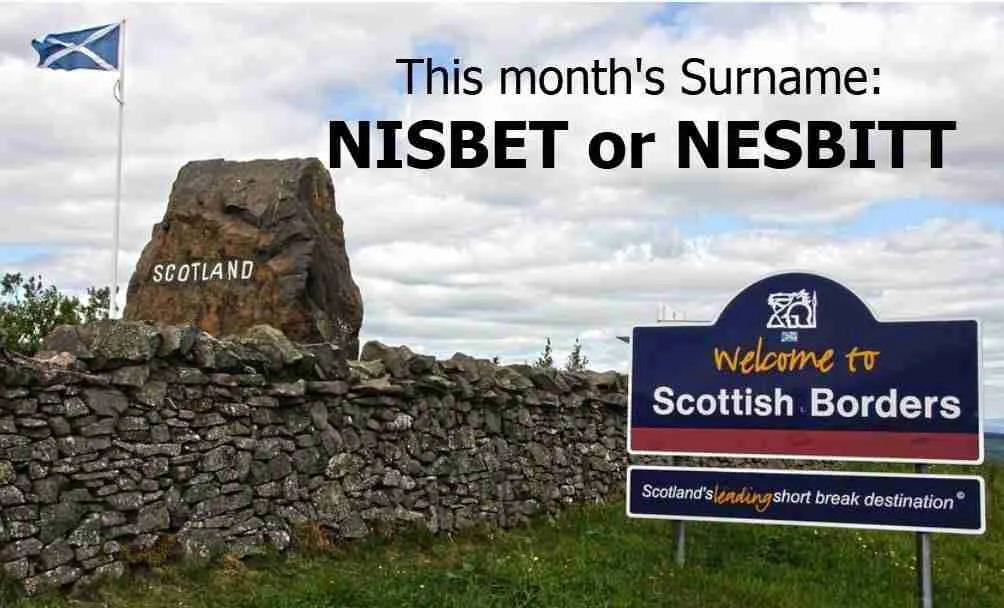
Behind the Scottish Surname: Nisbet or Nesbitt
Do you want to know the meaning or the history of this amazing Scottish surname? Let’s get started with the latest surname in our series of stories about Scottish family names… this time it is the Nisbet or Nesbitt surname, and we have a number of people who made an impact in Scotland. Are you related to any of them?
Variations of the Scottish Nisbet Surname
The surname Nisbet is a variant of ‘Nesbitt’ or ‘Nisbit’, although alternate spellings include Nisbeth, Nisbett and Nesbit. There are apparently over 200 variations of the surname according to the Nesbitt Nisbet Society.
The meaning of the Nisbet or Nesbitt Scottish Surname
‘Nese’ means nose and ‘bita’ meaning a piece of raised ground or a bend in a river. Therefore, Nisbet probably means raised land shaped like a nose, or a bend in a river shaped like a nose. Indeed, both Nisbet village in Roxburghshire and Nisbet House in Berwickshire are situated beside the bend of a river.
The Origins of the Nisbet Scottish Surname
It is likely that the name came from the Scottish Borders. In Roxburghshire, there is a pretty hamlet called Nisbet located between Kelso and Jedburgh near the river Teviot. This hamlet is part of a conservation zone. Significantly, it is a great example of an estate village that hasn’t really changed since the 19th Century. It was built for the farm workers of West Nisbet and East Nisbet farms.
In Berwickshire, Nisbet House is located south of Duns near the river Blackwater. Built in the 17th century by Sir Alexander Nisbet, it used to have a moat which is no longer there. The Nisbet family don’t own it anymore, they lost it during the Civil War when the family overstretched their finances for supporting King Charles I.
Several Nisbet families held estates in various parts of Scotland. The Nesbitt/Nisbet Society of North America has an interesting pdf map showing the different locations of Scottish castles named after the Nisbet family.
First Recorded Spelling
The first recorded spelling of the family name was Willian de Nesebite who witnessed a deed of the Nesbite lands to the Priory of Coldingham. There was also Robert de Nesbit who was a witness in a document belonging to the records of the Abbey of Kelso from the late 12th century. Interestingly, this Scottish surname was brought to Sweden in the 16th century where many descendants still live in the country. Nevertheless, the surname and its variations continued to be used over the centuries.
Well known people with the Nisbet or Nesbitt name
Known Scottish people who made an impact with this Scottish surname included:
- Alexander Nisbet (1657–1725), Scottish Heraldist
- John Nisbet, Lord Dirleton (1609–1687), Scottish Judge
- John Nisbet (1627–1685), Scottish Covenanter
- Mary Nisbet (1778–1855), Countess of Elgin
- Murdoch Nisbet (1531–1559), Scottish Bible Translator
- Scott Nisbet, Scottish Footballer (Rangers FC)
- James Nesbitt (b. 1965) Irish Actor
If you know you have a Scottish Nisbet or Nesbitt in your family tree and want to learn more about them, then contact Sarah at Unlock Your Past who will get you started on your family history journey.
Look out for future blogs on Scottish surnames. Let me know if you want me to write about your Scottish surname, just leave a comment below…
Sarah x
You may also like...
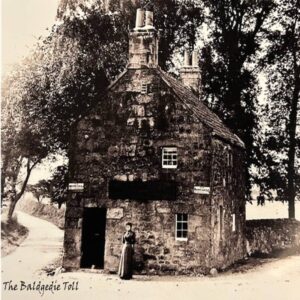
The Life of a Tollkeeper
A tollkeeper was a person who collected road fees from travellers. This old occupation was prominent during the 18th and 19th centuries.
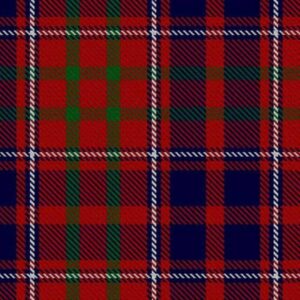
Cameron Surname: Origin, Meaning & History
The Cameron surname has Gaelic origins and it is associated with Clan Cameron, one of the most influential Highland clans.
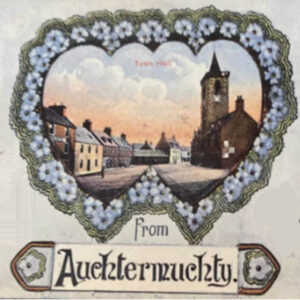
Ancestral Visit to Auchtermuchty, Fife
Auchtermuchty in Fife is known as Muchty to locals. What does Stratheden Whisky, Jimmy Shand and the Proclaimers have in common?
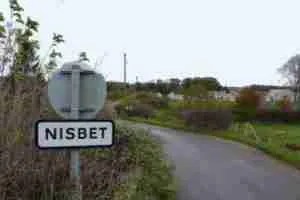
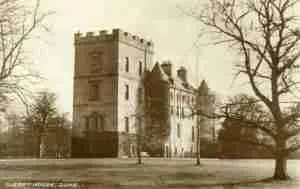
I didn’t know any of this until you did my family tree and this goes into even greater detail about the Nisbet name! As always, thank you so much Sarah!
I am so sorry for not replying sooner. Researching the Nisbet family name and history has been fascinating. You must be proud to be a Nisbet!